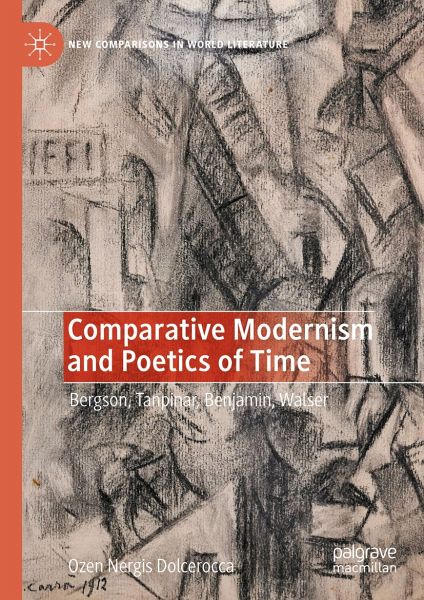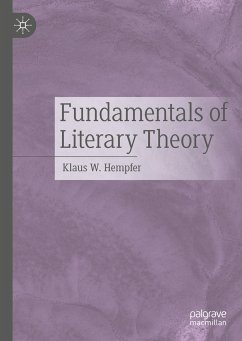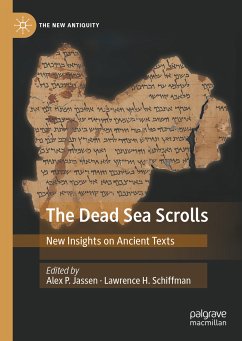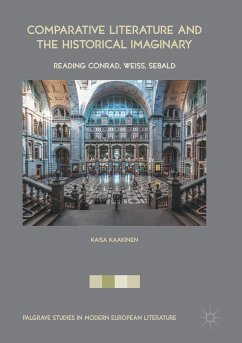
Comparative Modernism and Poetics of Time (eBook, PDF)
Bergson, Tanpinar, Benjamin, Walser
Versandkostenfrei!
Sofort per Download lieferbar
88,95 €
inkl. MwSt.
Weitere Ausgaben:

PAYBACK Punkte
44 °P sammeln!
This book explores the conceptualization of time in early twentieth-century literature and thought, based on a transnational and translational model of literary history, focusing on Turkish, French and German literary traditions. Each from different cultural backgrounds, these modernists provide a radical critique of modern time regimes, which calibrate time in singular temporal narratives. The book traces the philosophical strand of this critical chronometry from Henri Bergson's theory of time, through Walter Benjamin's ambivalence towards decay of tradition, and finally to A.H. Tanpinar and ...
This book explores the conceptualization of time in early twentieth-century literature and thought, based on a transnational and translational model of literary history, focusing on Turkish, French and German literary traditions. Each from different cultural backgrounds, these modernists provide a radical critique of modern time regimes, which calibrate time in singular temporal narratives. The book traces the philosophical strand of this critical chronometry from Henri Bergson's theory of time, through Walter Benjamin's ambivalence towards decay of tradition, and finally to A.H. Tanpinar and Robert Walser's modernist fiction. Negotiating regionally marked concepts and topoi of temporality, it discusses networks of cultural circulations and maps a revised intersection of Turkish and Western European literary histories. It is an essential read for scholars and students of comparative and world literature, modernist studies, and cultural history.
Dieser Download kann aus rechtlichen Gründen nur mit Rechnungsadresse in A, B, BG, CY, CZ, D, DK, EW, E, FIN, F, GR, HR, H, IRL, I, LT, L, LR, M, NL, PL, P, R, S, SLO, SK ausgeliefert werden.












